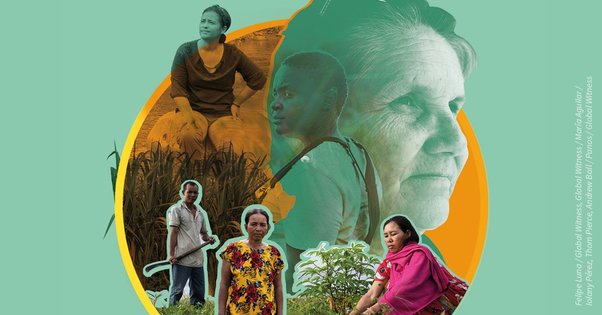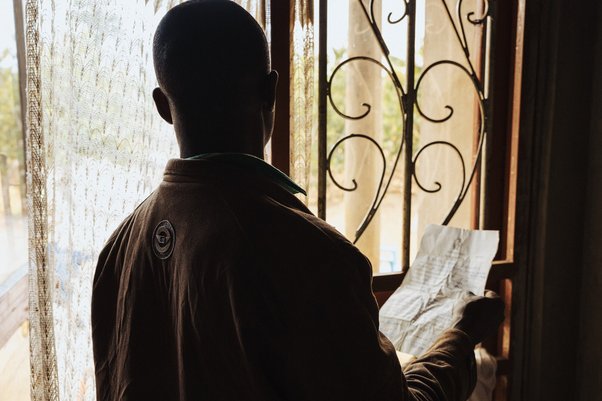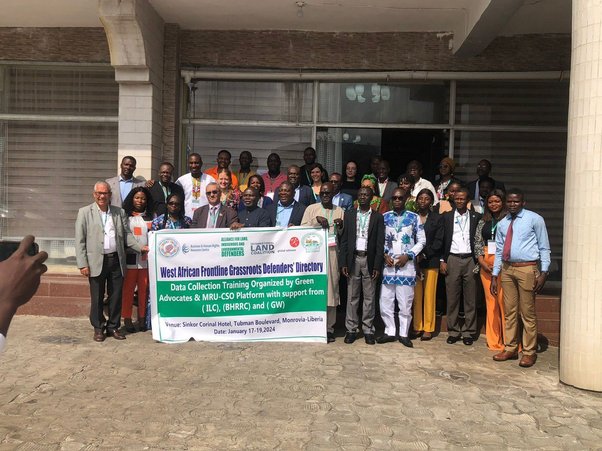A lot of people thought my mum was crazy.
They thought she was crazy for her warnings about the illnesses the mine would cause. About the livestock it would kill. About the violence it would bring.
Today, it’s obvious to everyone that she wasn’t crazy. She was right.
For years, my mum Fikile Ntshangase – Mama Ntshangase to me, and to so many others – was a leading force in the Mfolozi Community Environmental Justice Organisation’s campaign against the Tendele Coal Mine, which borders Hluhluwe-iMfolozi Park, Africa’s oldest nature reserve. It also borders the community of Somkhele.
That’s where my mum lived, where she raised me. As a teacher, as a mother, as a leader, she began to see things happening in the community. She saw the cracks in the walls of people’s homes and wondered if they were caused by the constant blasts from the mine. She saw the coal dust gathering in living rooms and wondered if it was also gathering in people’s lungs. And she saw the tension the mine caused, the families it broke apart, the fear it spread.
When Tendele applied to extend its open cast operations, to gobble up yet more community land, my mum became the mine’s worst nightmare. She organised, she campaigned, she educated people about their rights. Many in the path of the extension agreed to leave. But not my mum. She stood firm, rejecting pay-outs, even joining a legal action against the mine.
I have this feeling that the mine believed they were operating in a rural area, where no one is educated. Where no one is going to question them. And yes, this is a rural area. But as they found out, we do have people who ask questions, people who know their rights, and stand their ground.
Ultimately, I believe that’s what cost my mother’s life. One Thursday evening last October, my son Buyile was spending time at his grandmother’s property, playing with the dogs in the yard. Three unknown men arrived, stopping to check with Buyile whether his grandmother was in. She was. They shot her dead in her living room.
At first, I prayed that Buyile didn’t see my mother’s body, and that he didn’t see the fatal shots as they were fired. Now I pray that he can overcome the pain, the loss that we share between us. But that trauma exists for all Somkhele, in one way or another. The murder traumatised an entire community. We no longer know who we can trust, who we can speak freely to.
People sometimes ask me what I’m going to do, whether I’m going to stay here and keep my mother’s fight alive. I’m too proud of her to let it die. I know the dangers – we all know the dangers. But I’ve decided I have to stay. I’m going to join the fight.
Since my mother’s death, things haven’t been going well. South Africa’s Supreme Court recently ruled in favour of the mine. To this day no arrests have been made in the investigation into my mother’s murder. There has been no accountability. It seems to me that someone wants this mine expansion and the extraction to go ahead, no matter the cost.
Despite all that, all the obstacles we face, there is a movement growing in South Africa. A growing group of people who realise that we need to change the way we think about ‘development’, and its association with destructive industries like coal mining. True development means sustainable management of land and natural resources for the benefit of future generations, not the destruction we have seen in Somkhele and countless other communities across the country.
If I could say one thing all those concerned, it would be this: it’s not worth it. Whatever money you’re getting from the land, it’s not worth families being torn apart, it’s not worth the blood and tears. Come to the table and listen. You’re going to need to, because when Fikile gave her life for her people, she kickstarted a movement of people who will stand up for what’s right. Her struggle lives on.
Petmin Limited which owns the Somkhele mine through its subsidiary Tendele Coal Mining Ltd., acknowledges community tensions may have been a factor in Fikile's death. It ‘strongly condemns any form of violence or intimidation’ and has offered full co-operation to the police to ensure that the culprits face the full extent of the law.
Petmin Limited have said that investigations by independent third parties found reported house cracks to be due to poor workmanship rather than blasting; and that reports of respiratory illnesses were unfounded. They state that the mine conforms to legal standards regarding dust in the area.


